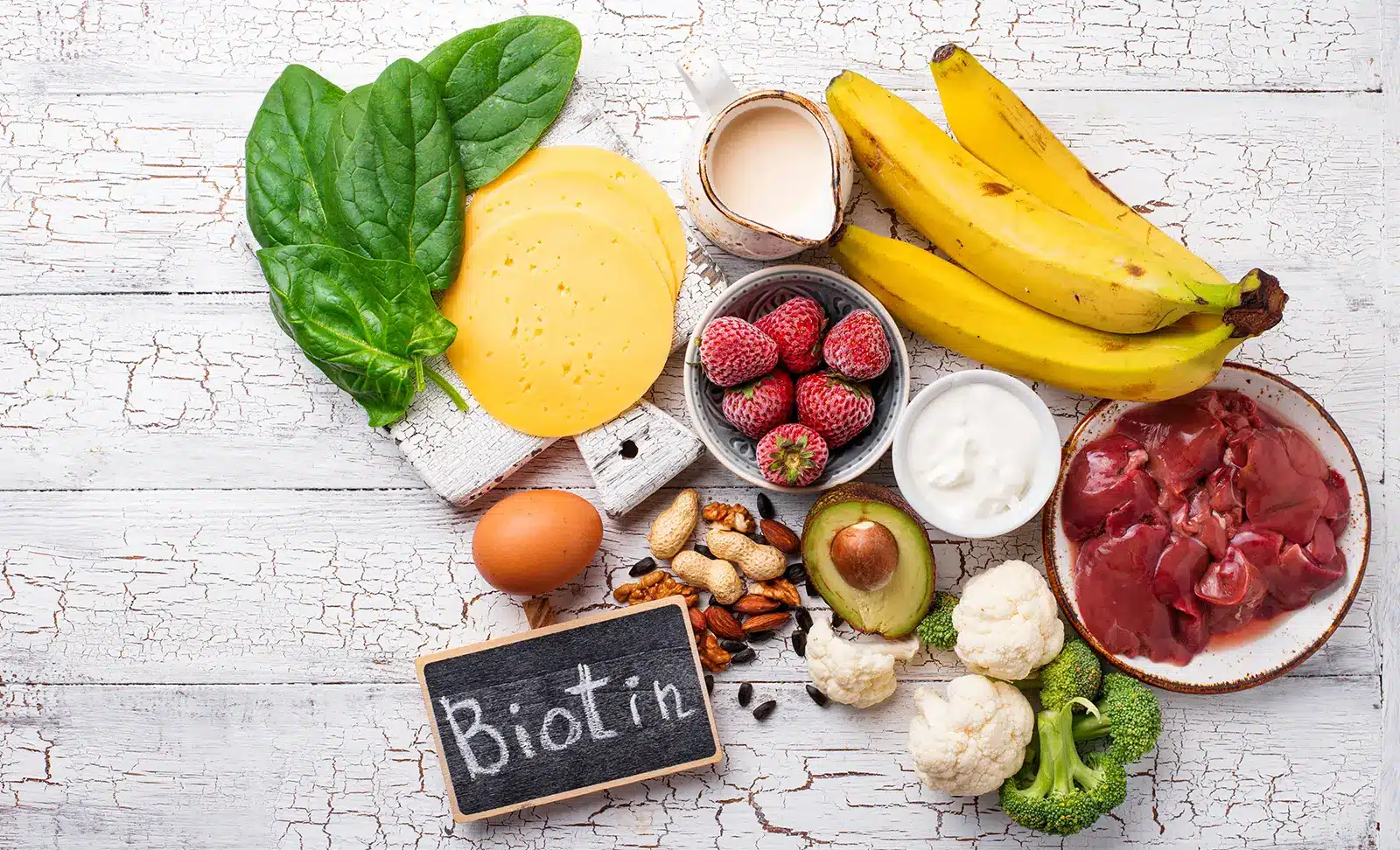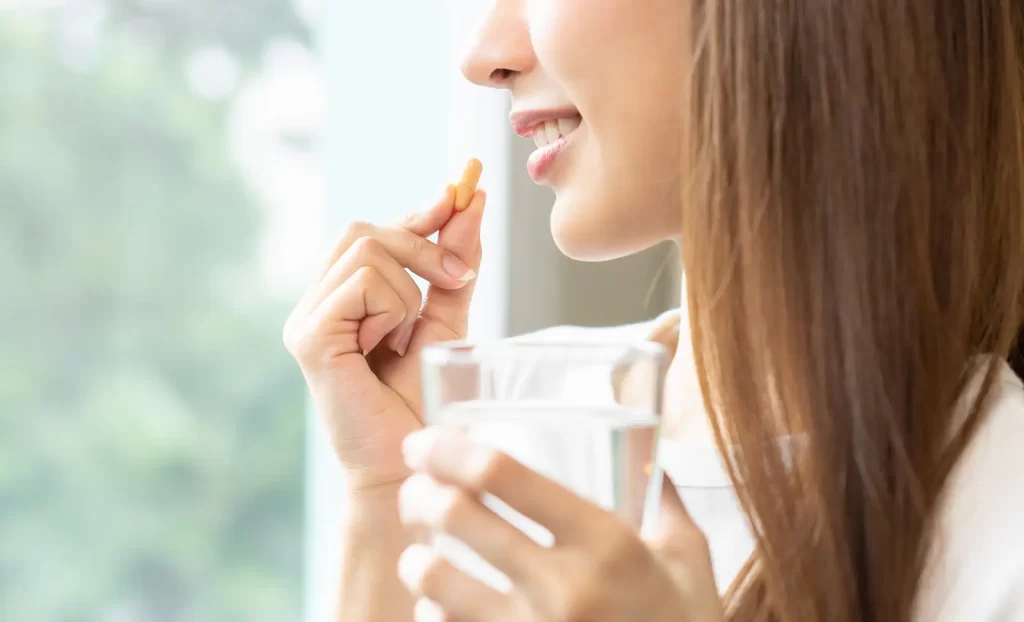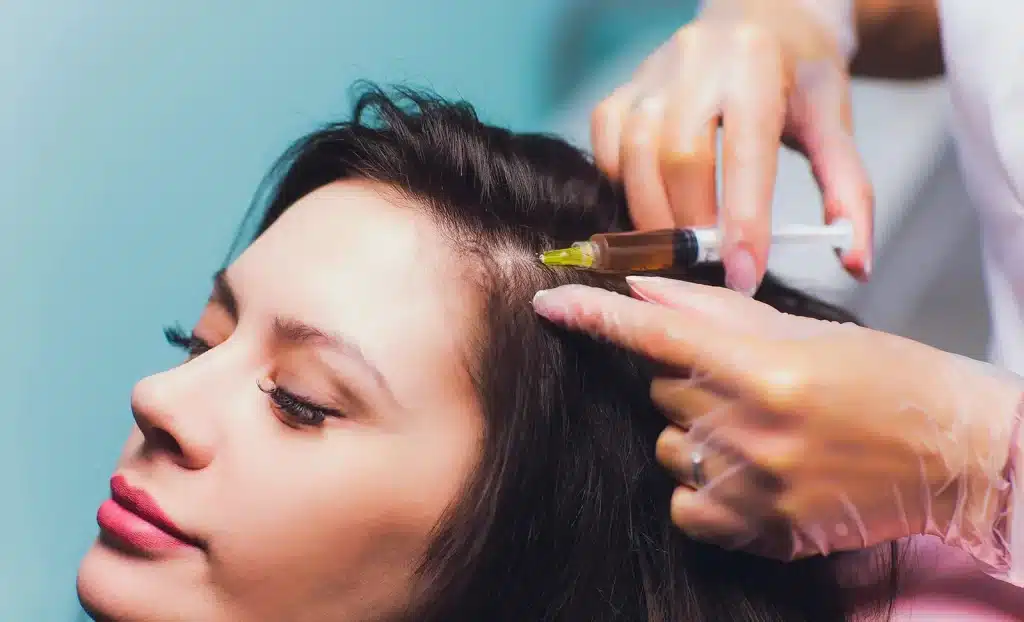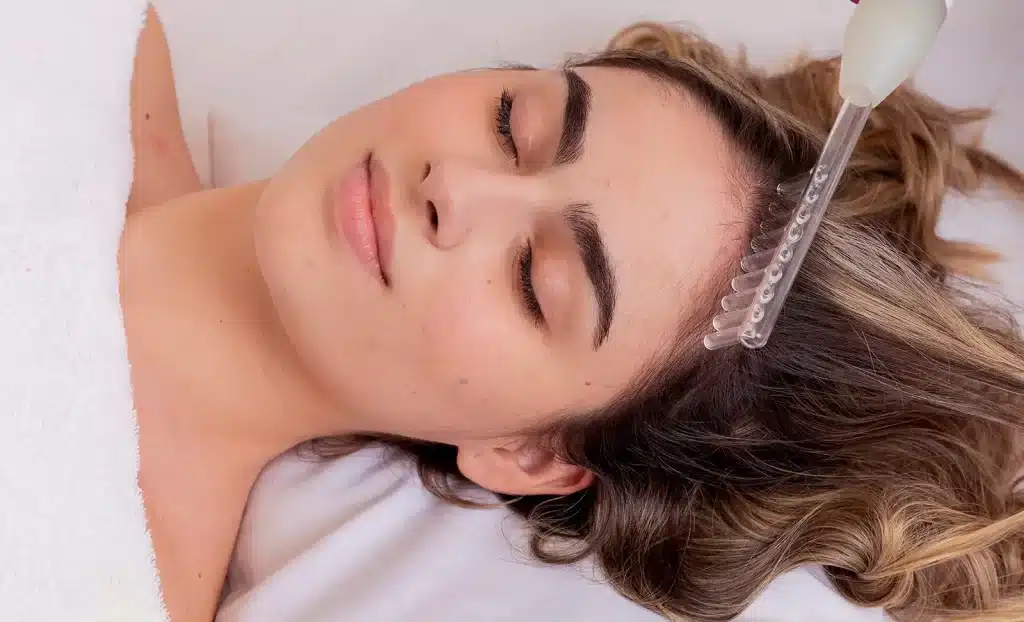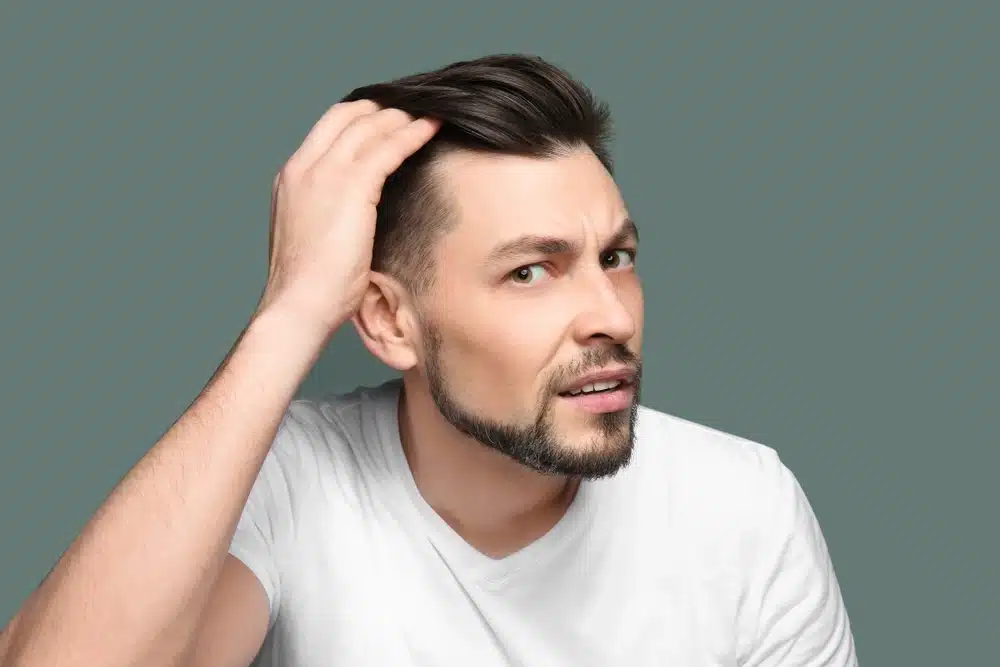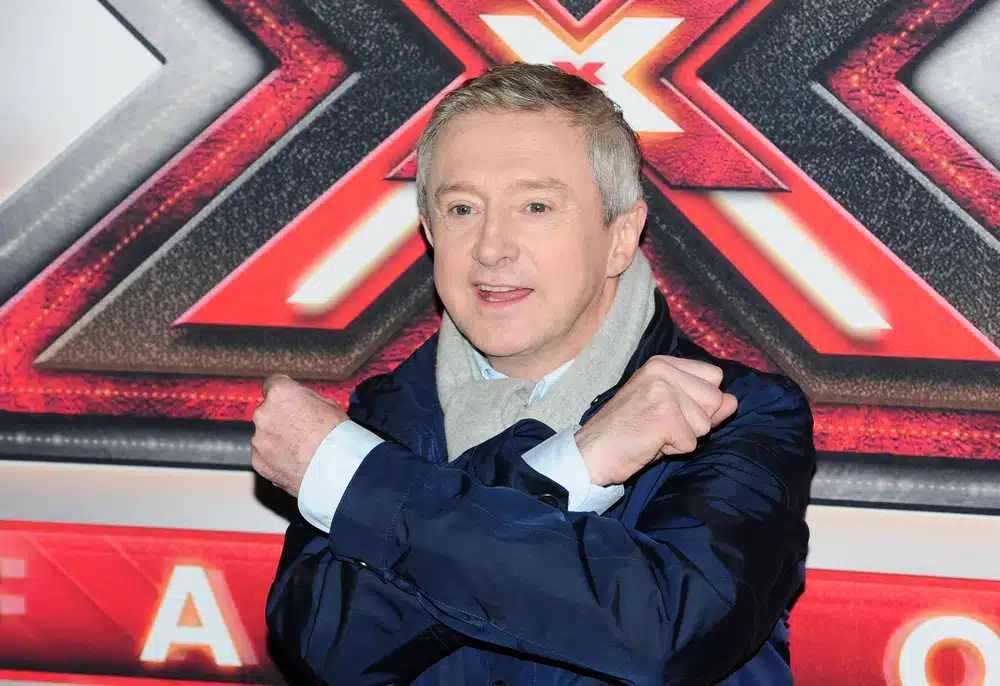Has hair loss become a worry in the back of your mind? Maybe it’s more than a minor concern, and you’ve noticed your scalp is far more visible than it ever was before. If so, it’s safe to assume you’ve looked into various hair restoration options, which also means you’ve likely stumbled across the benefits of biotin on hair. Of course, the last thing you want is to waste your precious time, money, and energy on an ingredient that has no impact on your strands. So, is biotin worth it? In this article, we will cover precisely what biotin is and whether it can help with hair loss.
What is Biotin?
First, let’s understand what biotin is. Simply put, biotin is the vitamin B7 [1] that is found in a lot of different foods, including eggs, nuts, and legumes. When consumed, the body then breaks it down into energy. This nutrient is an essential part of anyone’s diet, and you will be consuming biotin even if you don’t intend to. However, if you don’t consume enough of it, you may end up with a biotin deficiency, which can cause problems for your skin and hair.
Can Biotin Help with Hair Loss?
So, does biotin for hair loss actually work? The truth is that there isn’t quite enough evidence to suggest that biotin works as a hair loss treatment. However, if you are deficient in biotin, taking biotin supplements (or increasing your intake of biotin through biotin-rich foods) may help you reverse hair loss symptoms.
It’s a good idea to look at some studies. In one study [2], there was some growth in the hair and nails of people taking biotin, but it’s important to note that these people had biotin deficiencies, so it doesn’t prove that healthy individuals experience results. The takeaway is that biotin can be beneficial for thinning hair, but only if you have a deficiency.
Signs of a Biotin Deficiency
It helps to know whether or not you have a biotin deficiency before spending money on biotin supplements. If you have any of the following symptoms, [3] it’s worth getting checked by the doctor:
- Dry Skin
- Brittle, Dry Hair
- Hair Loss
- Fatigue
- Appetite Loss
- Red Rash
- Trouble Sleeping
- Muscle Pains
- Low Mood/Depression
Your doctor can diagnose a biotin deficiency with a simple blood test, which can show the levels of vitamin B7 in your blood. If you do have one, it’s possible your problem is biotin hair loss and increasing your biotin intake will reverse it.
What Causes a Biotin Deficiency?
A couple of things may be behind a biotin deficiency. It could be due to medications you take (such as antibiotics), a poor diet that doesn’t include enough vitamins and minerals, or an intestinal condition like colitis. The very rare disorder biotinidase deficiency can also cause it, an inherited disorder which causes the body to be unable to recycle vitamin B7/biotin. [4]
How to Use Biotin for Hair Loss
If you have a biotin deficiency (or you suspect you have one), then it makes sense to incorporate the water-soluble B vitamin into your diet, as it may have a positive impact on your strands, helping you to regrow your hair. So, how do you use biotin for hair loss? There are three popular methods for doing so:
Taking Biotin Supplements
One of the easiest ways to include more biotin in your diet (and potentially help with hair loss) is by taking a biotin supplement. They often come in the form of a capsule, usually with other vitamins and minerals included (such as collagen and zinc). However, you can get biotin supplements on their own. It’s recommended that you take between 30-100mg of biotin per day, with the maximum dosage being 300mg, which is when biotin for female hair loss could help.
Eating Biotin-rich Foods
An alternative route to taking biotin supplements is increasing your biotin intake naturally, which involves eating foods rich in the stuff. The good news is that plenty of delicious foods contain lots of biotin, so you can enjoy a tasty and nutritious diet and boost your intake at the same time. Here are just some of the foods that are high in biotin:
- Eggs, particularly raw egg whites
- Legumes
- Sunflower Seeds
- Beef Liver
- Avocadoes
- Yeast
- Almonds
- Salmon
- Pork
- Tuna
Many of these foods also contain other beneficial nutrients, such as protein and other vitamins, so they are worth incorporating into your diet even if you’re not particularly low in biotin.
Using Biotin-enriched Hair Products
A lot of people enjoy using shampoos and conditioners that include biotin. They are straightforward to use. If you have a biotin-enriched shampoo, you would simply lather into your scalp and rinse off as you would with any regular shampoo. However, there is very little evidence or lab tests with results to suggest these shampoos significantly impact hair loss, so don’t expect miracles.
Are There Side Effects Associated with Biotin Supplements?
Generally, taking biotin is considered very safe, and you can get the supplement easily over the counter. However, taking too much (or taking it when you are deficient) may cause some mild, unpleasant side effects of biotin, such as digestive problems and nausea. On top of that, having very high amounts of biotin can even cause a false positive test for thyroid disease, so it’s not worth taking unless you genuinely need it.
What if Biotin Doesn’t Work?
What if biotin for women’s hair loss doesn’t work? What if it makes no difference to male pattern baldness? Unless you have a deficiency, it’s unlikely that biotin for hair loss will work, but you shouldn’t feel discouraged, thanks to the many other solutions to combat thinning or falling out hair!
Hair Loss Medications
There are a couple of hair loss medications available that can have a real impact on hair growth. The most common are minoxidil and finasteride, which are often used to treat androgenetic alopecia. Minoxidil is available over the counter, and you use it by applying the medication topically to the scalp and leaving it in for three hours, while finasteride is a prescription-only medication that you typically take orally. Some other medications are used for hair loss, including dutasteride and spironolactone. Talk to a doctor if you’re thinking about these options.
Considering Other Deficiencies
There are some other deficiencies that, like biotin, can cause the locks to shed, so it’s worth getting those levels checked if you’ve experienced hair loss. These include vitamin B12, riboflavin, vitamin E, iron, and folate.
Platelet Rich Plasma
Platelet-rich plasma (PRP) injections have been proven to promote new hair growth. The blood gets drawn from your body and then directly injected into your scalp, with many people experiencing positive results after around one year of treatment. However, like with most treatments, there may be some side effects, including swelling and headaches.
Low-Level Light Therapy
Low-level light therapy is another popular hair restoration method that uses light frequencies and wavelengths to target the scalp and promotes hair growth. It’s a low-risk procedure with a high success rate, making it an excellent alternative to hair transplants.
Hair Transplant
For a permanent solution, a hair transplant is your best option. This surgical procedure uses small incisions in the scalp to transfer healthy hair follicles from one place to the other, allowing the hair follicle to grow healthy hair in its new home. The results are very natural, and the recovery is relatively minimal thanks to the development of hair transplants over the years.
Hair Transplant: A Highly Effective Solution
Sometimes, a nutritional deficiency is not the root cause of hair loss, and you need to find another solution, such as a hair transplant. The good news is that hair transplants are highly effective, with those with androgenetic alopecia experiencing a more youthful appearance [4] thanks to the procedure and subsequent hair growth. If you have real trouble with hair loss and solutions like biotin supplements are not cutting it, this hair restoration solution may be your best bet. Just look at this patients gallery to see how effective it can be!
Biotin for Hair Loss: In Summary
Despite biotin products often stating that they support healthy hair growth, biotin supplements are only for those with a biotin deficiency. If you take them without having a deficiency, you’ll likely be wasting your time and money, and you may even experience some mild symptoms such as nausea. If you do have hair loss caused by a biotin deficiency, then taking the supplements may do its part in reversing and preventing hair loss.
Are you ready to seriously tackle your hair loss? There are solutions that have definite results. If you’re interested in the hair-restoring techniques we offer here at Harley Street Hair Clinic, contact our expert team. You can even download our revolutionary hair track app, which allows you to track hair growth and book consultations with the most experienced and talented surgeons in the business.
Sources:
- https://www.webmd.com/vitamins/ai/ingredientmono-313/biotin
- https://www.ncbi.nlm.nih.gov/pmc/articles/PMC5582478/
- https://www.healthline.com/health/biotin-deficiency#side-effects
- https://medlineplus.gov/genetics/condition/biotinidase-deficiency/
- https://www.ncbi.nlm.nih.gov/books/NBK547740/
